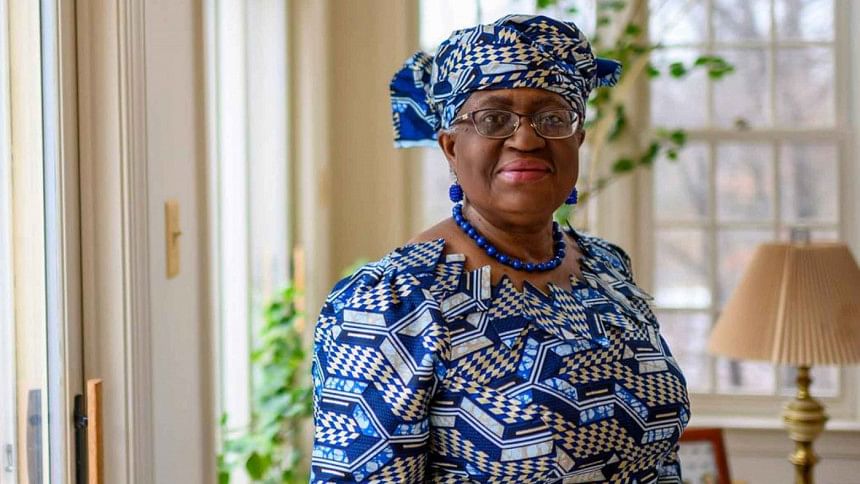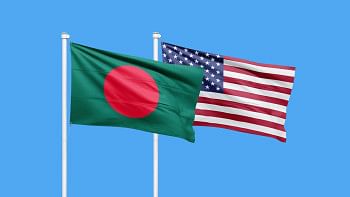WTO receives a booster shot with new DG

The World Trade Organization (WTO), the body that is entrusted to promote free international trade, has recently received two very well-timed shots in the arm. The WTO was in a moribund state—almost on life support—during the last year and a half, following the outbreak of the US-China trade war and the total decimation of its Appellate Court. International trade among nations suffered a massive blow during the Covid-19 pandemic and there was concern on whether the WTO would just fold itself up and wait for another international body to take its place. Now, the WTO cheerleaders can keep their fingers crossed and hope that this year will bring about a much-needed morale boost and restore some normalcy in the global arena. This will not only facilitate the resuscitation of the WTO but also enable rule-based trade and commerce to grow, which will in turn create a synergistic effect on economic growth and create a virtuous cycle.
On March 1, the new Director-General (DG) Ngozi Okonjo-Iweala, a Nigerian economist and former government minister, took charge at the WTO headquarters on the banks of Lake Geneva. On the same day, she addressed the ambassadors and other top government envoys that make up the 164-member body's General Council and minced no words. "The world is leaving the WTO behind. Leaders and decision-makers are impatient for change," she said. She warned them that several trade ministers had told her that "if things don't change," they would not attend the WTO's biggest event—a ministerial meeting—"because it is a waste of their time."
Incidentally, she is the first woman and African to head the WTO. With International Women's Day a few days away, her ascendancy bodes well for the role of women in international leadership.
The WTO has been without a permanent leader since the former DG Roberto Azevedo stepped down on August 31, a year ahead of his term. Dr Okonjo-Iweala will be at the helm for a renewable term expiring on August 31, 2025. However, she understands that she does not have much time before the next Ministerial Council meets in June 2021 in Nur-Sultan, the Kazakh capital. The meeting, known as MC12, will be an important milestone as the world economy emerges from the clutches of the pandemic.
The new DG is aware of the role she will play as she tries to revive the WTO. She made three important points on her first day at work. As was expected, she called for a "technology transfer" when it comes to Covid-19 vaccines. After her appointment last month, she said that promoting and facilitating the enhanced distribution of Covid-19 vaccines and protective equipment will be high on her priorities list.
Second, she urged member nations to reach a deal to reduce overfishing after years of fruitless talks. Third, she immediately set about trying to change the organisation's culture. "It cannot be business as usual. We have to change our approach from debate and rounds of questions to delivering results," she proclaimed to the General Council.
MC12 was originally scheduled to take place on June 8-11, 2020, but was postponed due to the Covid-19 outbreak. The last meeting of this group, MC11, was a total failure and the leaders of member countries need to recognise now that the issues need to be resolved well in advance of the ministerial council meeting, and that talks need to be sped up. Areas of contention include e-commerce, subsidies, and illegal, unreported, and unregulated (IUU) fishing.
The new DG's arrival couldn't have come at a better time. The future of world trade has been in jeopardy since the US-China trade war broke out in 2018. Even before the pandemic hit in early 2020, the WTO was facing mounting problems. Countries closed their borders, and nationalistic agendas challenged the economic argument for free trade. "Numerous countries began to impose trade restrictions—on imports and exports—under the pretense of national security."
The WTO forecasts that trade could decline this year by as much as 32 percent. World merchandise volumes had been in decline for nearly a year, even before the outbreak hit. In 2019, governments introduced trade restrictions, including tariff increases, stricter customs procedures, and the imposition of import taxes and export duties, on USD 747 billion worth of global imports, the highest since 2012, prompting businesses to postpone investment and hurting growth, job creation and purchasing power around the world.
However, Okono-Iweala is realistic in terms of her expectations. In an online press conference after her election in mid-February, she said, her task "will not be easy because we also have the issue of lack of trust among members which has built up over time, not just among the US and China and the US and the EU... but also between developing and developed country members, and we need to work through that."
Okono-Iweala holds a PhD from MIT and is the board chair of Gavi, a global alliance to ensure low-income countries can access life-saving vaccines. Many are hoping that her political interpersonal skills, rather than trade background, can help inject some confidence back into the system. "She can contribute to strengthening multilateralism by using her influence," said Peter Ungphakorn, a former WTO secretariat staff member. "There is cause for renewed optimism that the WTO can measure up to the tasks ahead," Alan Wolff, a WTO deputy director-general and an American trade lawyer, said at a conference last month.
The global trade body was created in 1995 to help settle trade disputes, write new trade rules and encourage the flow of goods and services worldwide. However, the last ministerial meeting, MC11, held in 2017 in Buenos Aires, was a total failure, with members at loggerheads in two negotiations over fishery subsidies and the digital trade.
Before he resigned in frustration, the former DG Azevedo cautioned, "Ensuring that businesses and households have the confidence to invest and consume will be a very important part of our economic recovery. And it is why the multilateral trading system has an important role to play in all of these efforts."
"All members must intensify efforts to do what they can—at home, and collectively—to foster a strong rebound. In our activities here at the WTO—on monitoring and transparency, implementation of commitments, negotiations and broader reform efforts—we must work to ensure that our organisation emerges out of this crisis more resilient than ever, and even more responsive to members' changing needs."
Bangladesh has a lot at stake in the revival of the WTO and the new DG's success. Our march to middle-income status will hinge on export growth and remittances. The Bangladesh government has outlined a plan to raise USD 150 billion through remittances in the next five years. The success of the DG's agenda will only assist us to achieve the target.
Dr Abdullah Shibli is an economist and has been working in higher education and information technology for 35 years in the USA and Bangladesh. He is also Senior Research Fellow, International Sustainable Development Institute (ISDI), a think-tank in Boston, USA.

 For all latest news, follow The Daily Star's Google News channel.
For all latest news, follow The Daily Star's Google News channel. 



Comments